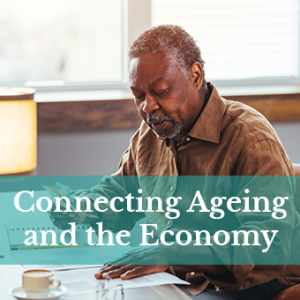
Championing Senior Entrepreneurship as a Key Strategy for an Inclusive Economy
Presenter(s):
Rebecca Lekoko, Defence Command and Staff College, Botswana
Abstract
Leaving behind older persons (55years ad above) in economic development is one of the challenges many countries face, Botswana included. This non-inclusion is fuelled by many factors, among them being stereotypes, stigma, discrimination against older adults and personal circumstances like low or no achievements in formal education as well as poverty, hence applying a deficiency exemplary when it gets to recognizing their worth in contributing to the economy. Evidence indicates that through targeted programs such as functional literacy and entrepreneurial skills training, the two dimensions of non-inclusion, namely, participation poverty and financial insecurity can be addressed. Cases exemplifying this claim shall be drawn from senior entrepreneurs trained through the Department of Out of School Education and Training. Participants choose from a variety of none entrepreneurial training areas.
In Botswana, there is very little tailored for the economic empowerment of older adults. In the absence of a national policy on aging and older, responsibility and accountability for their empowerment are scattered across different government ministries such as Ministry of Local Government and Rural Development, Department of Social Services, Department of Community Development, Ministry of Health and Wellness and Ministry of Presidential Affairs. As stated, there is no national framework coordinating these activities in order to maximize support and empowerment for them to continue contributing to society in line with the current vision of an inclusive economy. An inclusive economic puts citizen at the centre of economic development in which no-one is discriminated against on any basis or circumstance, be it gender, age or ethnicity.
Effective championing of senior entrepreneurship can be done when certain conditions are in place. The presence of specific guidelines or policy addressing ageing and older adults is key for anchoring effective services. In the absence of these policy guidelines, a number of citizen empowerment schemes are not tailored specifically to older adults’ need but for all deserving citizens aged 18 years and over and some are location based. However, many of these have the potential to benefit this group if intentional efforts are made to include them. They can be reviewed particularly ensuring clear practical guidelines necessary for attracting older persons’ participation and empowerment in an inclusive economy.
Learning from the senior entrepreneurs trained through DOSET revealed an interesting pattern of resilience to go on with their businesses despite challenges such as no market to sell their goods; no diversified marketing strategies except depending on word of mouth or reputation in the communities through networks they developed. These challenges are fuelled by the lack of senior enterprise support systems like a policy that can address their financial needs and market issues as well as certification of the indigenous skills they have advanced so that they can pass these (train) to other people including youth. Since these seniors are proving that age per se is not a barrier for participation in an inclusive economy, their entrepreneurial journey can act as a motivation for stakeholders to recognize their worth, support and empower accordingly.
Bio(s):
Rebecca Nthogo Lekoko is a full professor of Adult Education (Lifelong Learning and Community Development), currently working for the Defence Command and Staff College as the Dean of Academic Affairs. Her community engagements and outreach activities are mostly targeted to address social empowerment, weaving neatly pertinent issues of inclusive policies, rights-based and participatory approaches. Her professional acuity is continually refined through partnership activities with the communities and membership in professional networks such as Sustainable Future Global Research Network; Pass It On Network (PION- Southern Africa); University of the Third Age (U3A, Botswana, an organization that she directs) and Ageless Inspirations Charitable Organization (an organization that she co-founded). She has published extensively and some of her flagship publications are in the areas of interest already mentioned above. She has attended many international conferences on different capacities like a keynote speaker, chair of sessions, a discussant to the keynote speaker and a paper presenter. She enjoys spending quality time volunteering services to underprivileged groups like older adults, Deaf and Blind communities especially under the auspices of non-government organizations such as Sign Language and Skills Development Centre and Pono Low Vision Society.
